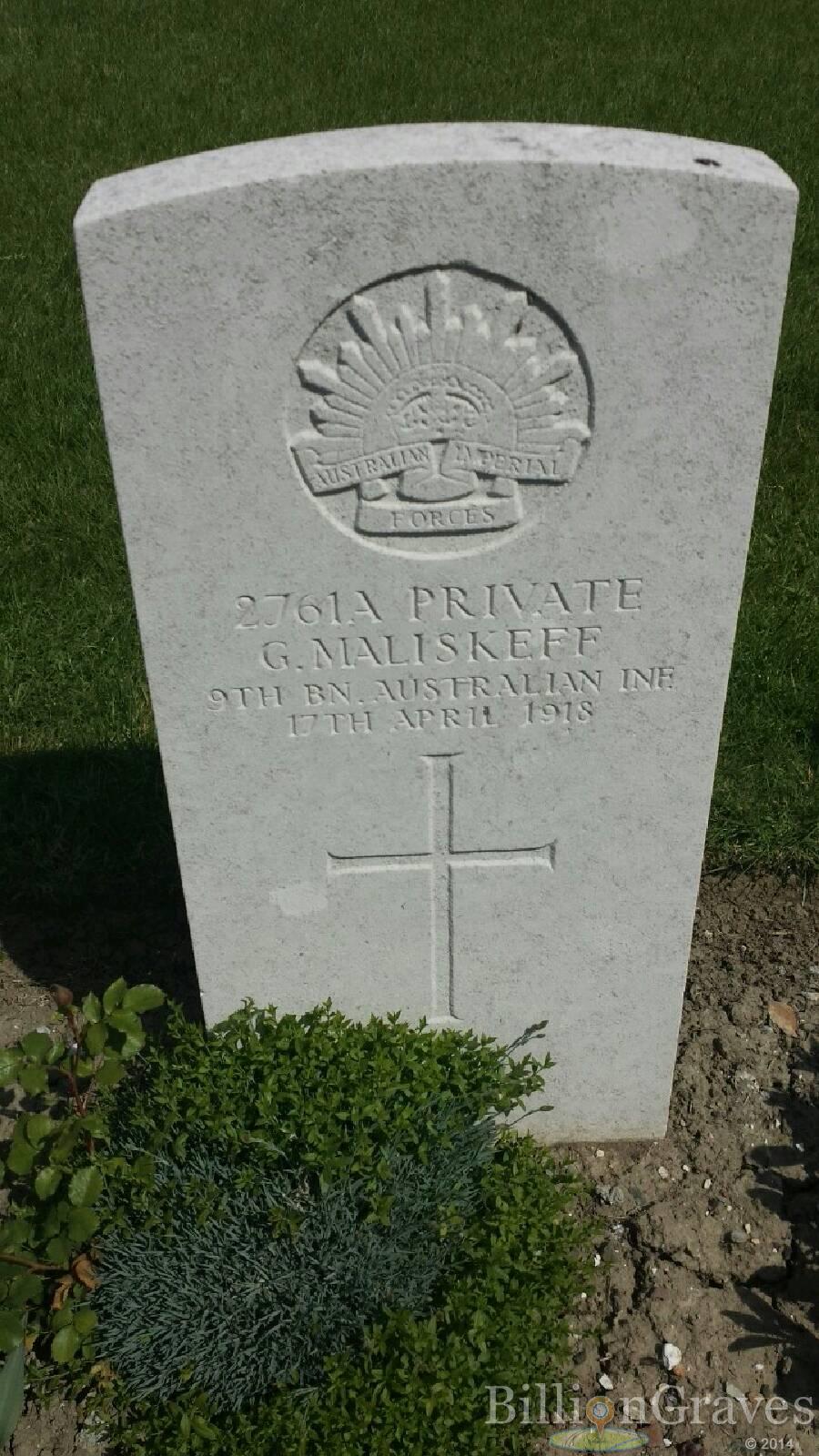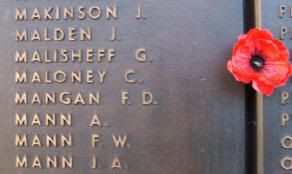George Malisheff
| Alias | in 1916 stated that his correct name is Checkman, Petr Fedorovich |
|---|---|
| Russian spelling | Георгий Малышев; Петр Федорович Чекман |
| Born | 1884 |
| Place | Odessa or Yampolsky uezd, Podolia, Ukraine |
| Ethnic origin | Ukrainian/Russian |
| Religion | Church of England |
| Contacts | Enlisted together Malisheff, Akim Petroff, Sholmatoff, Tarasenkoff, Tuagarin, and Yannin |
| Residence before arrival at Australia | Served 5 years in the Russian Army |
| Arrived at Australia |
on About 1911 |
| Residence before enlistment | 1911 Evergreen Cooyar railway, Brisbane, 1915 Mount Morgan, Qld |
| Occupation | Miner |
| Naturalisation | Served as Russian subject |
Service #1
| Service number | 2761A |
|---|---|
| Enlisted | 14.08.1915 |
| Place of enlistment | Rockhampton, Qld |
| Unit | 25th Battalion, 9th Battalion |
| Rank | Private |
| Place | Western Front, 1916-1918 |
| Casualties | WIA (shell shock) 1916 |
| Final fate | KIA 17.04.1918 |
| Cemetery | 28 Borre British Cemetery, France |
Materials
Digitised service records (NAA)
Digitised Embarkation roll entry (AWM) (Malishelff)
Roll of Honour (AWM)
Blog article
Newspaper articles
Central District volunteers. - Morning Bulletin, Rockhampton, 18 August 1915, p. 8
From Russian Anzacs in Australian History:
[...] with the group of six Russians from the 9th Battalion who enlisted together at Rockhampton on 14 August 1915, all were listed as casualties by the end of 1916. Akim Petroff from Novozybkov and Nicholas Sholmatoff from Moscow were severely wounded at Armentières just a few days after their arrival at the front; they were invalided to Australia. George Malisheff from Podolia suffered shell-shock at Pozières; he recovered but was killed in 1918. At Mouquet Farm Tehon (Tikhon) Yannin from Samara was killed on the same day that Alexander Tarasenkoff from Orel was wounded; Tarasenkoff recovered eventually, rejoining his unit a year later. Finally, John Tuagarin, also from Orel, had to defend his Russian honour when he was court-martialled in October [...]; he was killed in action in December 1916.
[...] George Malisheff 'was on terms of great friendship with [Mrs E. Hammersley's] family and before leaving them he said he was going to fix things so that [her daughters] would benefit in the event of his death'. They sent him parcels and letters until he was killed at Hazebrouck in 1918.
Gallery


AWM memorial panel 56
 Russian Anzacs
Russian Anzacs